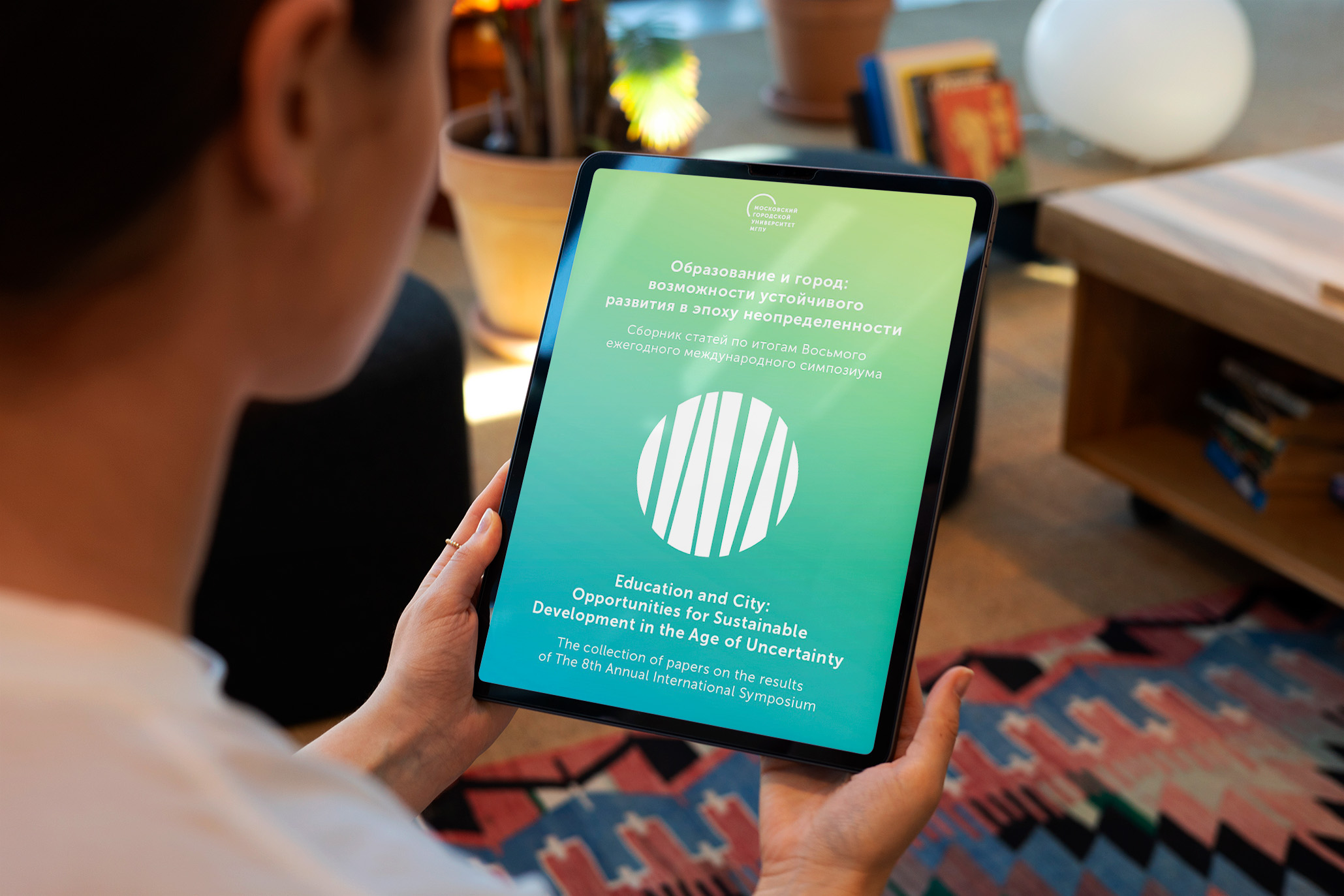A collection of articles has been published following the VIII Annual International Symposium “Education and the City: Opportunities for Sustainable Development in an Age of Uncertainty”, held at Moscow City University in the spring of 2025. Participants from 17 countries presented research on the role of universities in analysing and designing urban environments, developing the educational landscape of the city, and exploring the urban context of education and professional development. The proceedings continue to expand and deepen these themes.
We present to readers the articles prepared by MCU scholars based on their conference presentations:
-
“How the School Supports the Experience of Security: Teachers’ Views on Social Media” (Vera Avramenko). A school should be a place where teachers feel safe—but is this truly the case? An analysis of teachers’ posts on social media reveals that the main risks lie not only in conflicts with parents or students, but also in overload, leadership style, and organizational culture. The author identifies several directions for prevention and support: strengthening environmental factors that support teachers, creating conditions for professional growth through training, providing psychological assistance, and developing social support practices.
-
“Legal Characteristics of Family Schools in Russia: Results of a Pilot Study” (Elena Petryaeva, Vitaly Matveev, Svetlana Domracheva). Family schools, as an alternative form of education, are becoming increasingly visible, yet their legal status remains uncertain. The authors surveyed founders of such schools across Russia, revealing a diversity of organisational models—from cooperatives to licensed centers. The study shows that family schools play an important social role, providing individualised learning and addressing children’s socialisation challenges. However, their integration into the education system is hindered by legal ambiguity and strict licensing requirements.
-
“Information Culture: The Content of the Concept (Based on Russian and International Sources)” (Kseniya Kikteva). What is “information culture,” and how does it relate to functional literacy? Examining Russian and international approaches, the author argues that the concept goes beyond skills of working with information, encompassing values, attitudes, and safety. The article emphasizes that the development of information culture requires a description of its components in relation to human activity. The author’s detailed framework allows for identifying levels of formation, adaptation, and assessment of information culture.
-
“The Consortium ‘Family Education’ in Russia and Global Analogues: A Comparative Review” (Elena Petryaeva). In 2024, Russia established its first consortium on family education, bringing together universities, parent communities, and private schools. How does it compare with international initiatives? The analysis shows that the Russian model is unique in its comprehensive approach, combining four areas: research, pedagogy, public outreach, and legal support. The author also outlines future directions: international cooperation and comparative studies of the effectiveness of family education models under different legal conditions.
-
“Philosophical and Pedagogical Identity of Family Schools in Russia: Founders’ Perspectives” (Elena Petryaeva). What values underpin family schools? Interviews with 22 founders from different regions revealed diverse orientations: some stress humanism and freedom, others tradition, and others seek radically new approaches. Yet contradictions often arise between declared ideals and parental expectations. The study shows that family schools not only create alternative learning trajectories but also reflect a crisis of trust in mainstream schooling. This research contributes to understanding alternative forms of education in Russia and their role in transforming pedagogical paradigms.
-
“Integration of Francophone Linguistic and Cultural Practices into Moscow’s Socio-Cultural and Educational Space” (Valeria Rayskina). French language and culture are becoming increasingly visible in Moscow, from schools and universities to cultural initiatives. An analysis of urban media demonstrates that Francophonie is acquiring symbolic status and influencing the cultural identity of the metropolis. The article illustrates how language and cultural practices shape the city’s polylingual and intercultural space.
-
“Teen Reading and Neural Networks: Five Ideas for Developing Information Culture” (Olesya Senenko). Can neural networks inspire teenagers to read more? The author proposes five ideas for integrating generative AI technologies into school practices—from neuro-art albums and video-books to literary quizzes. These projects not only enliven work with texts but also foster critical thinking, creativity, and digital literacy.
These and other articles from the proceedings are available at the provided link.
Photo: Freepik

